
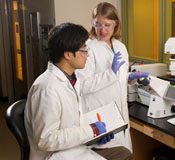 |
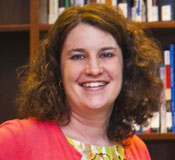 |
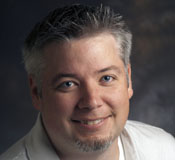 |
 |
State legislators pass major hospital bill
 |
Last month, legislators in both chambers at the Gold Dome passed a new hospital Medicaid program financing bill, SB24, which was signed into law by Governor Deal. The legislation allows for continuation of the state's hospital provider tax beyond the scheduled sunset date of June 30, 2013, and gives the state's Department of Community Health (DCH) the authority to make important changes to the original tax formula. Revenues generated by the program will be used to fill the state's $700 million Medicaid deficit, and the legislation will prevent a $429 million cut in Medicaid reimbursement rates for hospitals as well as cuts for other providers.
It is unusual for a bill to move so quickly (it passed both chambers by Day 9 of the 40-day session), which indicates how important it is for the overall state budget.
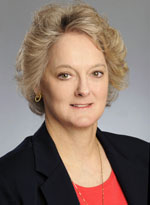 |
|
| Linda Womack, director of state government affairs at Emory |
The tax proposal that will be implemented by the DCH will be more favorable to Emory Healthcare than the original revenue formula that was enacted in 2010. Working through the Georgia Hospital Association, the state's hospitals were united in support of this new legislation, which passed after three weeks of intense lobbying efforts and more than a year of preparation. We appreciate the support we received from our DeKalb (100%) and Fulton County (97%) House Delegations.
Governor Deal is appointing a hospital advisory committee to help the DCH draft rules for the program. Some of its key provisions include the following:-
Allows the DCH the flexibility to create a hospital provider payment program similar to the process of the nursing home provider tax
Ensures legislative oversight of the program through the budget process and Administrative Procedures Act
Ensures that no funds from the program will be spent without going through the legislative budgetary process
Sunsets if federal funds are not available
Sunsets if hospital Medicaid reimbursement is reduced
Sunsets on June 30, 2017, and would require reauthorization by the legislature.
—Linda Womack, linda.womack@emory.edu, 404-727-5306
New directions in regenerative medicine
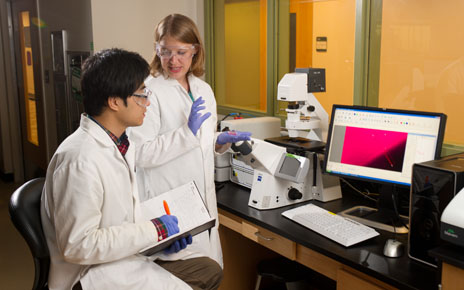 |
The field of regenerative medicine has grown considerably since its early days, and recent evolution of this research specialty at Emory reflects this change. The entity known formerly as the Georgia Tech/Emory Center for the Engineering of Living Tissues, which was founded in 1998 with funding from the National Science Foundation, laid the foundation for what is now the Emory/Georgia Tech Regenerative Engineering and Medicine Center, supported with investment from the two universities.
The new center is more than just a name change, says W. Robert Taylor, co-director of the center and director of the division of cardiology in the medical school. Its mission and strategy reflect the new demands of interdisciplinary research in regenerative medicine.
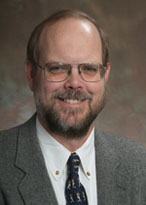 |
|
| W. Robert Taylor | |
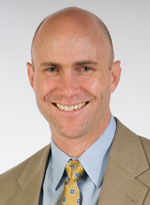 |
|
| Robert Guldberg |
"Regenerative medicine has exploded over the past 15 years, and we've had a change in mindset in that time," says Taylor, who is also the Marcus Chair in Vascular Medicine. "We used to be focused just on growing cells and building tissue. The theme of regenerative medicine now is harnessing your own cells to repair themselves. Today, we know that we can repair cardiac cells and even repair or replace blood vessels. We used to give a drug to stop a disease, but now we are looking at how to repair the damaged tissue. Aging itself is a failure of repair."
In its previous iteration, the center had its share of success—since 1998, 15 technologies have been licensed, 13 startup companies have been formed, and three clinical trials have gotten under way. But Taylor and co-director Robert Guldberg, mechanical engineering professor and director of the Petit Institute for Bioengineering and Bioscience at Georgia Tech, wanted to encourage the formation of new research teams. Hence the new center and flurry of new initiatives. Late last year, the center awarded 11 seed grants for promising new research in how the body can harness its own potential to heal.
"These grants range from translational to basic science research," Taylor says. "We had a retreat back in the fall attended by more than 100 people. I think those who attended were surprised to see the breadth of expertise available to them—biomaterial researchers, clinicians from every discipline, biologists. Regenerative medicine is the ultimate poster child for the practice of interdisciplinary medicine."
One such grant went to a team from Georgia Tech, Emory, and Morehouse College made up of stem cell biologists, stem cell engineers, and a surgeon. The team wants to improve the quality of stem cells taken from bone marrow of people with critical limb ischemia to prevent amputation.
"Mesenchymal stem cells derived from the bone marrow of healthy people have been shown to support new blood vessel growth and help re-establish blood flow to the affected area, but the quality of these cells in people with critical limb ischemia is poor because of the typical patient's age and medical condition," says Emory surgeon Luke Brewster.
Other researchers are working on new therapies for arthritis, new ways to regenerate cardiac muscle, and techniques to plant genetically engineered cells in melanoma tumors to limit the growth of blood vessels to starve the tumor.
The center also hopes to encourage new research collaborations with its annual conference. This year's conference, "Technologies Enabling Novel Therapies," is March 20-23.—Kay Torrance
New dual degrees being offered in bioethics
 |
Over the past year, the Emory Center for Ethics has expanded its MA program in bioethics to offer dual degrees with the schools of medicine, nursing, public health, and law, adding to a joint degree program already in place with theology. Applications are being accepted now for students to begin these programs in the fall. The MA in bioethics is offered through the Laney Graduate School.
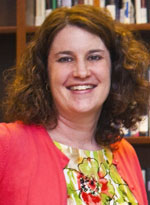 |
|
| Toby Schonfeld |
"Health professionals routinely face ethical dilemmas in the workplace," says Toby Schonfeld, director of graduate studies for the MA-Bioethics Program. "This program offers a foundation in the major principles and theories of bioethics to help them make sound, ethically justified decisions."
The MA program in bioethics accommodates both full- and part-time students, including those with full-time jobs, says Schonfeld. "We have physicians and allied health professionals currently enrolled, for example," she says. Faculty and staff can use the university's courtesy scholarship or Emory Healthcare's tuition reimbursement to participate in the program.
For students considering dual-degree programs, the MA-Bioethics Program is particularly attractive. According to Schonfeld, "Dual-degree programs in medicine and bioethics are relatively common, but very few schools offer the MSN/MA-Bioethics or the MTS/MA-Bioethics combination, which helps differentiate Emory in the marketplace. Dual degrees guide students through the intersections between disciplines, making them better prepared to enhance patient care, participate in the design and implementation of health policy, and be essential members of the community of thinkers who create legislation, education, and opportunities for advocacy.”
The MA program in bioethics is by nature interdisciplinary, with faculty and students representing a variety of disciplines across Emory. "This program can help ensure that health professionals use ethics as the driving force for all of their practice decisions," says Schonfeld. View videos with information about the program's strengths and advice to students.
Answering questions of genetics and pedigree at Yerkes
A little over a year ago, Yerkes researcher Zach Johnson and colleague Steve Bosinger established a new genomics core at the research center. The new core already has provided genetic information for more than 30 research projects and has moved Yerkes to the top echelon of primate centers with detailed genetic characterizations and pedigrees for all species housed there.
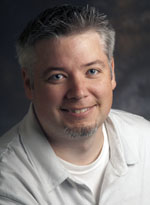 |
|
| Zach Johnson |
Knowing genetic differences and similarities among the animals matters a lot, says Johnson. Take, for example, sooty mangabeys. Yerkes has the world's largest breeding colony of these superstars in AIDS research. Sooty mangabeys are one of a handful of monkeys that naturally become infected with simian immunodeficiency virus, from which HIV evolved. Infected humans develop AIDS. Infected mangabeys carry high viral loads of SIV but remain healthy. Researchers like Guido Silvestri, head of the Yerkes Division of Microbiology and Immunology, in which the genomics core sits, want to understand how sooty mangabeys evolved to do that, knowledge that could lead to development of new immune-based therapies for humans with HIV. Johnson provides Silvestri and others the genetic characterizations they need. He also is working with Baylor's Human Genome Center to sequence the sooty mangabey's genome, an accomplishment that will help researchers worldwide.
As a key member of the Yerkes colony management group, Johnson also uses genomics technology to obtain genetic information on paternity and other familial relationships for each of the 300 animals born there each year. This information, used to develop breeding plans to maximize genetic diversity and health, is especially important for mangabeys, an endangered species whose natural habitat is disappearing.
Johnson's own research is a good example of how the new core helps researchers. He and colleagues Mark Wilson and Jenny Tung study how stress changes gene expression (production of proteins) and how such changes affect tissues or bodily processes. One study found that when socially subordinate animals are continually stressed by more dominant animals, genes related to inflammation are expressed at a higher level, with negative implications for immune, cardiovascular, and other functions. Another study focuses on how diet and stress interact to influence genetic expression, contributing to the onset of obesity. Johnson also is looking at genetic differences in the bacteria that populate the guts of obese versus skinny rhesus macaques.
Other researchers turn to Johnson and Bosinger when they need genetic information for studies such as those on how the malaria parasite changes during different stages of infection or which genes are expressed differently in response to different vaccines, resulting in helpful or harmful effects. The growing genomics core currently consists of Johnson and Bosinger, a bioinformatics specialist, and two lab technicians.
After completing his PhD in genetics and neuroscience at the University of Texas in 2009, Johnson joined Yerkes as a postdoctoral fellow, looking at genetic mechanisms that influence behavior, stress phenotypes, transplant success, SIV/AIDS progression, and memory. He stayed as a research associate and was named assistant research professor last year. Today, although most of Johnson's days are spent writing grants and papers and meeting with scientists in search of genetics/genomics help, he still loves the hands-on time with animals at the field station and the occasional trip he makes to Africa, most recently to collect genetic data from baboons, the subject of his doctoral dissertation. But what he loves most, he says, is working in an area of science—and in a place like Yerkes—where real discoveries can take place in today's world.
State of the WHSC
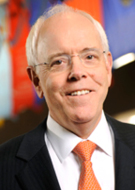 |
|
| Wright Caughman |
Thanks to those of you who were able to attend the annual State of the Woodruff Health Sciences Center address on February 20. For those who couldn't join us in person, we've posted a video of the event online. You can also download a year-in-review slide deck showcasing many—though by no means all—of our terrific accomplishments over the past year.
A common theme of this year's State of the Woodruff Health Sciences Center address was, "There is no status quo. Change is inevitable." Fulfilling the research, education, and patient care missions of the Woodruff Health Sciences Center has a profound societal impact. The changing economic environment and growing constraints on all revenues that support our mission should not be viewed as a threat, but rather as a once-in-a-generation opportunity to lead transformational change; to preserve what is excellent and build for the future; to use our resources wisely and exercise good stewardship; to focus on value and take responsibility and accountability; to expect and manage for excellence; and to take intentional and courageous action to ensure the continued success of our promise and our mission.
As always, thanks for all that you do to move our important work forward.
Please direct questions and comments to evphafeedback@emory.edu.
 |
Stroke certification for EUH Midtown
 |
Emory University Hospital Midtown was awarded Advanced Primary Stroke Center Certification from the Joint Commission of Disease-Specific Care. The certification signifies that the hospital follows best practices for stroke care.
EUH Midtown joins other Emory or Emory-affiliated hospitals that also hold the designation, including Emory University Hospital, Emory Johns Creek Hospital, Saint Joseph's Hospital, and Southern Regional Medical Center. Each certification lasts for two years and is the result of the 2009 Coverdell-Murphy Act, which mandated that all Georgia hospitals be assessed for stroke preparedness. Emergency medical services are advised to bypass hospitals that do not have the stroke center certification or status as a remote treatment center. Read more.
Malaria consortium launches website
A malaria systems biology website launched in late January will inform the public, scientists, teachers, students, and journalists about malaria research and create new collaborative opportunities for researchers worldwide.
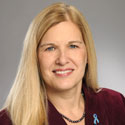 |
|
| Mary Galinski |
The website features the Emory-led Malaria Host-Pathogen Interaction Center (MaHPIC), a consortium of malaria researchers supported by the National Institute of Allergy and Infectious Diseases. MaHPIC includes research partners at the University of Georgia, Georgia Tech, and the CDC. Yerkes is administering the consortium's contract of up to $19.4 million over five years.
"The website will provide insights about the complexity of malaria infections around the world and the research challenges faced by scientists aiming to make a malaria vaccine, new drugs, and diagnostics," says Mary Galinski, MaHPIC program director. Read more about the website and about the grant establishing MaHPIC.
U.S.-China mental health research collaborative opens
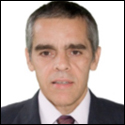 |
|
| Michael Phillips |
Emory and Shanghai Jiao Tong University recently opened the Shanghai Mental Health Center-Emory University Collaborative Center for Global Mental Health to advance shared research projects.
Shanghai Mental Health Center is one of the largest mental health providers in China, treating 1 million patients annually. China began reforming mental health services in 2009 and passed its first mental health law in October 2012 to standardize treatment services. Emory and the Shanghai Mental Health Center will assist in facilitating and monitoring changes as the new law is implemented. Michael Phillips, a psychiatrist on the faculty at Emory (medicine and public health) and at Shanghai Jiao Tong University, is director of the new center. Read more.
Gifts fund breast cancer center
 |
| Tom Glenn, Winship executive director Walter Curran, and Lou Glenn |
Gifts totaling $10 million from the Wilbur and Hilda Glenn Family Foundation to the Winship Cancer Institute will fund a center for breast cancer research and treatment. These gifts name the Glenn Family Breast Center and will help support Winship's research priorities in breast cancer, including funding for clinical trials, recruitment, and continued support for the Glenn Scholars, a program awarding pilot grants for high-impact breast cancer research at Winship. The gifts also will bolster Winship's biospeciman bank, breast cancer screening and care, and research into triple-negative breast cancer. Read more.
Georgia legislators formally honor former medical dean
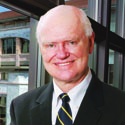 |
|
| Tom Lawley |
Thomas Lawley (dermatology) was recognized by the Georgia House of Representatives on his retirement as dean of the medical school and for his many years of service to Emory and the medical school. Read entire resolution.
Emory's 2012 annual report now online
One of nine institutional priorities in the university's 70-page 2012 annual report, Point of View, is to respond creatively to fiscal challenges in the Woodruff Health Sciences Center. See Section VI or page 15 in the pdf. This section features a video of EVPHA Wright Caughman.
Appointments
 |
|
| Sheryl Bluestein |
Sheryl Bluestein was named assistant director of infusion services, overseeing operations of the ambulatory infusion centers that are part of Emory University Hospital Midtown. After completing the Emory Healthcare fellowship program in 2009, she joined EUH Midtown as a business manager and most recently served as senior manager for business development and planning at the hospital.
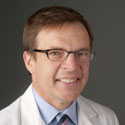 |
|
| Martin Sanda |
The medical school welcomes Martin Sanda, the new chair of urology, who joins Emory Feb. 28. He will also serve as director of the Prostate Cancer Center, which will be established at Winship. He comes from Harvard Medical School, where he was professor of surgery in urology. He also directed the prostate cancer center at Beth Israel Deaconess Medical Center and co-led the prostate cancer program at Dana Farber Cancer Center. Read more.
 |
|
| Barbara Walsh |
Barbara Walsh was named chief administrative officer of the Saint Joseph's Translational Research Institute (SJTRI). She most recently served as managing director of PricewaterhouseCoopers' Academic Medical Center consulting practice and will serve as interim operational leader while SJTRI searches for a permanent CEO. Jack Tillman, who has served as SJTRI interim president, is stepping back into his role as assistant VP of research and real estate at Emory.
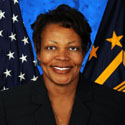 |
|
| Leslie Wiggins |
Leslie Wiggins was named director of the Atlanta VA Medical Center, replacing James Clark. Wiggins is a former VA deputy assistant secretary for labor management relations. Read more.
Honors
The following faculty members in health sciences recently received awards: View details.
• Peter Ash
• Otis Brawley
• Max Cooper
• Anita Corbett
• Sandra Dunbar
• Haian Fu
• Kareem Graham
• Leon Haley
• Hanjoong Jo
• Keith Klugman
• Thomas Lawley
• Louis Martin
• Michael McConnell
• Carolyn Meltzer
• Faye Routledge
• Tami Thomas
• Guillermo Umpierrez
• Thomas Wichmann
Events
March 5: University Senate presents Sandy Baum on Financial Aid: Moral Imperative, Competitive Tool, or Unsustainable Burden, 4 p.m., Jones Room, Woodruff Library. Read more.
